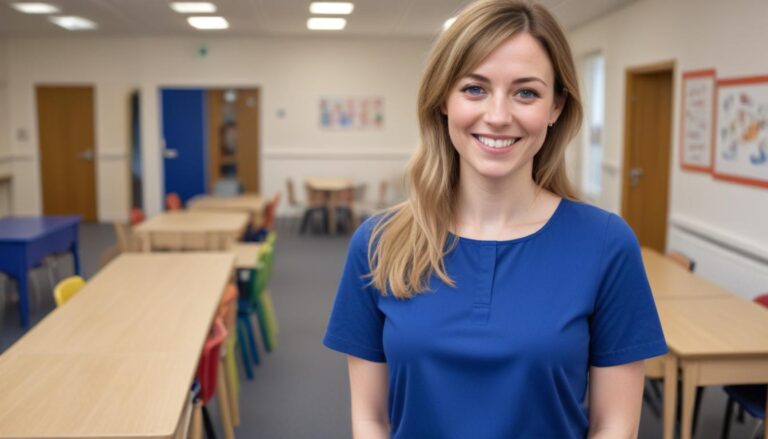
This guide will help you answer 1.3. Give examples of how the rights of a child or young person with mental health concerns can be upheld.
Children and young people with mental health issues have specific rights that need safeguarding. These rights are essential for their well-being and development. Professionals working with them must understand these rights and how to uphold them effectively.
Right to Be Heard
Every child has the right to express their views, feelings, and wishes in matters affecting them. This right is enshrined in the United Nations Convention on the Rights of the Child (UNCRC), Article 12. Listening to the views of young people with mental health concerns is essential for their empowerment and autonomy.
Ways to uphold this right:
- Create safe and supportive environments where children feel comfortable expressing themselves.
- Encourage open communication and active listening.
- Use age-appropriate language and tools, such as drawings or role play, for younger children.
Right to Access Appropriate Services
Children have the right to access healthcare and support services that meet their specific needs. Mental health services play a vital role in providing the necessary support. Timely and appropriate intervention can prevent the escalation of mental health issues.
To uphold this right:
- Assist in navigating health services, ensuring children know their options.
- Collaborate with healthcare providers to tailor interventions suited to the child’s needs.
- Advocate for service availability, especially in areas with scarce resources.
Right to Education
Education is a fundamental right. Children with mental health issues have the right to receive a quality education tailored to their needs. Schools should be inclusive and supportive environments.
Ways to support this right:
- Implement Individual Education Plans (IEPs) to cater to specific needs.
- Train teachers to create supportive classroom environments.
- Provide mental health resources and counselling within schools.
Right to Protection from Harm
Children have the right to protection from physical or mental harm. It is vital to create environments where they feel safe and secure. Recognising signs of abuse and ensuring swift intervention is crucial.
Ways to ensure this right:
- Implement safeguarding policies and procedures.
- Conduct regular training for all staff in recognising and reporting abuse.
- Collaborate with child protection services to safeguard children at risk.
Right to Privacy
Privacy is essential for maintaining dignity and trust. Children’s personal information, including their health records, must be protected. This right ties closely with confidentiality.
To protect privacy:
- Adhere to data protection laws, such as the Data Protection Act 2018.
- Limit access to personal information to authorised personnel only.
- Discuss cases only in professional settings and with consent, where possible.
Right to Equality and Non-Discrimination
All children have the right to be treated equally, regardless of their mental health status. Discrimination can exacerbate mental health problems, leading to exclusion and isolation.
Ways to promote equality:
- Foster inclusive attitudes within schools and communities.
- Challenge stigma around mental health through education and awareness campaigns.
- Support peer-led initiatives to create a sense of belonging.
Right to Rest and Leisure
Children have the right to rest, relax, and participate in play and recreation. These activities are vital for their mental health and overall well-being.
Ways to promote this right:
- Encourage participation in play and recreational activities.
- Provide opportunities for creative expression through art, music, or sports.
- Balance academic demands with leisure activities to reduce stress.
Involvement in Decision-Making
Involving children and young people in decisions about their care increases their engagement and satisfaction with services. It is essential that they feel a part of the process.
To involve them:
- Discuss treatment plans and seek their input.
- Respect their choices and preferences, guided by professional advice.
- Empower them with information to make informed choices.
Maintaining Confidentiality
Confidentiality is crucial in building trust with children and young people. It assures them that their concerns won’t be shared without their knowledge.
Ways to uphold confidentiality:
- Discuss confidentiality policies openly with children.
- Only share information on a need-to-know basis and with consent, if possible.
- Ensure secure handling of personal information through encryption and restricted access.
Support from Family and Community
Families and communities play a key role in supporting young people’s mental health. Positive relationships are fundamental in reinforcing a child’s sense of belonging and self-worth.
Ways to leverage family and community support:
- Engage families in therapy sessions where appropriate.
- Foster community support networks, such as peer groups or clubs.
- Educate families and communities on mental health issues to combat stigma.
Advocacy and Representation
Advocates play an important role in ensuring children’s rights are upheld. They provide a voice and support for children to express themselves effectively.
Ways to advocate for children:
- Work with organisations that focus on children’s rights.
- Provide access to independent advocates for children in care.
- Encourage self-advocacy by teaching children to express their needs confidently.
Staff Training and Awareness
Ongoing training for those working with children is vital. It ensures they remain informed about children’s rights and current best practices.
Key aspects of staff training:
- Provide regular workshops on children’s rights and mental health issues.
- Encourage reflective practice and continuous learning.
- Assess and improve training programs based on feedback and research.
Conclusion
Professionals have a duty to uphold the rights of children and young people with mental health concerns. By focusing on their rights to be heard, access services, and receive an education, we provide a foundation for their overall well-being. Connecting with families and communities and ensuring confidentiality, equality, and protection from harm is essential. Keeping children informed and involved in matters affecting them is fundamental to their independence and confidence. Continuous training and advocacy support professionals in safeguarding these rights.
Subscribe to Newsletter
Get the latest news and updates from Care Learning and be first to know about our free courses when they launch.






